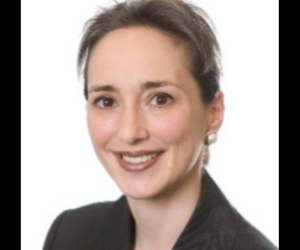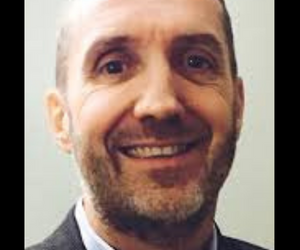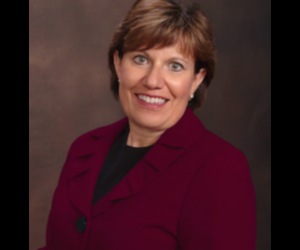News You Can Use: Recent Studies That May Change Your Practice
CALCIUM AND VITAMIN D RECOMMENDATIONS ARE CHANGING
Our long-standing emphasis on calcium and vitamin D supplementation is currently being called into question. In the case of calcium supplementation, there are downsides that in many cases may outweigh the benefits. In the case of vitamin D supplementation, we are not seeing obvious downsides. However, neither are we seeing enough benefit to make a strong case for advocating for supplementation.
There are cases where calcium supplementation is indicated. This includes people who follow a vegan diet, have lactose intolerance, or have osteoporosis. As well as people who have digestive diseases that interfere with the absorption of calcium.
However, for patients who aren’t at obvious risk for inadequate calcium, the risks of supplementation may exceed the benefits. Too much calcium can mean an increased risk of heart attack, stroke, muscle pain, mood disorders, and kidney stones.
Vitamin D supplementation does not have a strong downside risk. However, current research is telling us that the benefits do not seem as strong as we once thought. We need vitamin D, but the issue is, how much do we need? In the past we felt that people with calcium levels below 30 ng/mL would need supplementation. However, current research is causing us to rethink what normal levels of vitamin D are. Current research indicates that a much smaller percentage of women will actually benefit from vitamin D supplementation.
BREAST CANCER SCREENING GUIDELINES HAVE BEEN UPDATED
The American Cancer Society has been studying which approach to breast cancer screening improves health, avoids harm, and eliminates wasteful practices. The current recommendations from the American Cancer Society for average-risk women are: discuss the potential benefits (small reduction in breast cancer mortality) and harms (high false-positive rate, over-diagnosis) of screening with women aged 40-44 and perform annual mammograms in women who opt for screening; perform mammography yearly in women aged 45-54; for those women 55 and older, every 2 years with the choice to continue yearly. Screening should continue every two years as long as a patient is in good health and has a life expectancy of at least 10 years. I now follow these guidelines as they are clear, easy, and evidence based.
BREAST DENSITY AND THE NEED FOR ADDITIONAL SCREENING
Twenty-one states in this country require that patients be notified that they need to talk with their health care provider if tests show that they have increased breast density. However, the new data suggest that other risk factors in conjunction with breast density should determine who should get additional testing. These other risk factors would include all the traditional risk factors for breast cancer such as a strong family history of breast cancer, a previous breast biopsy, early menarche or late menopause.
INDIVIDUALIZE THE LENGTH OF TIME A WOMAN IS ON HORMONE REPLACEMENT THERAPY
New guidelines from the American Congress of Obstetricians and Gynecologists (ACOG) strongly support an individualized approach to how long an older woman should be on hormone replacement therapy (HRT). Some women have troubling and persistent symptoms, such as hot flashes, well into their 60s. If a woman has no contraindications for HRT, such as a family history of breast cancer or diabetes, an arbitrary stopping time doesn’t make sense.
GENETIC TESTING IS VALUABLE FOR ADJUVANTCHEMOTHERAPY
A new study validates the use of genetic testing for determining who will benefit from getting adjuvant chemotherapy. Initially, the recommendation was that all women should get adjuvant chemotherapy. Genetic tests can be conducted to determine who will benefit and who can be spared chemotherapy.
Search Articles
Latest Articles
Be Up In Down Times; Mitzi Perdue
Be Up In Down Times; Mitzi PerdueAbout The Episode Mitzi Perdue, along with Mark Victor Hansen, is the co-author of How to Be Up in Down Times. She is a health and science writer with an honors BA from Harvard and an MPA from George Washington University. Mitzi...
A fight for freedom everywhere’: Brighton Beach gala highlights Brooklyn’s solidarity with Ukraine
https://www.brooklynpaper.com/brighton-beach-freedom-gala-ukraine/ Publication –brooklynpaper.com
Ukrainian Courage and Hope: Trauma, Trafficking, Troll Farms, and Tenacity With Mitzi Perdue
Ukrainian Courage and Hope: Trauma, Trafficking, Troll Farms, and Tenacity With Mitzi PerdueWatch The Episode About The Episode Join war correspondent Mitzi Perdue as she shares compelling insights from her four journeys to Ukraine, including on-the-ground reporting...
MITZI PERDUE: Are Critics Of Trump’s Heated Rhetoric Against Zelensky Missing His Strategy?
https://dailycaller.com/2025/02/26/opinion-critics-trumps-heated-rhetoric-against-zelensky-missing-strategy-mitzi-perdue Publication –dailycaller.com
Subscribe to Updates
About Author

Mitzi Perdue is the widow of the poultry magnate, Frank Perdue. She’s the author of How To Make Your Family Business Last and 52 Tips to Combat Human Trafficking. Contact her at www.MitziPerdue.com
All Articles
Volatile Markets? Try Non-Correlated Investments
Volatile Markets? Try Non-Correlated InvestmentsAt a recent meeting of the Ritossa Family Office Summit in Dubai, Jagdeesh Prakasam said something that caught the attention of the several hundred investors who were listening to him. He said that by using artificial...
Family Governance Issues: Are You Struggling with Them
Family Governance Issues: Are You Struggling with ThemFamily businesses resemble countries in at least one key way. When you get the governance right, people have a chance at prospering and thriving. If you get it wrong, the result can mean unending distress. Babetta...
Family Businesses, a Unique Treasure to Their Communities
Family Businesses, a Unique Treasure to Their CommunitiesOlivier de Richoufftz from the Family Business Foundation knows something you probably don’t know about the Michelin Tire Company. This company contributes something of amazing and irreplaceable value to its...
What Coaching can do for you
What Coaching Can Do For YouKaren Snyder founded Concordia Consulting 27 years ago. Through her work, she helps senior executives and their teams achieve extraordinary results by working collaboratively. What has Karen learned in those 27 years that can help all of...
Entrepreneurs in the Family Business: Without Them, You’re at Risk!
Entrepreneurs in the Family Business: Without Them, You're at Risk!Entrepreneurship is essential for a family business to thrive. According to Bobby Stover, EY Americas Family Office Leader, “A family business that doesn’t find new opportunities is a family business...
Chad Naylor’s Investments and His Not-So-Secret Sauce
Chad Naylor’s Investments and His Not-So-Secret SauceBy Mitzi Perdue Chad Naylor from Naylor & Company Investments, LLC has an investment thesis that’s enabled him to make some extraordinary profits. Since the company’s founding over 14 years ago, their...






